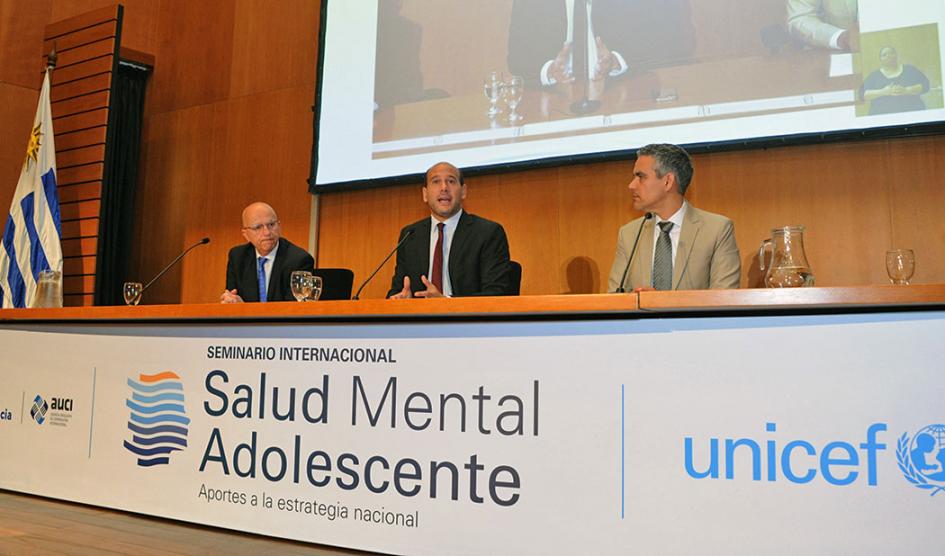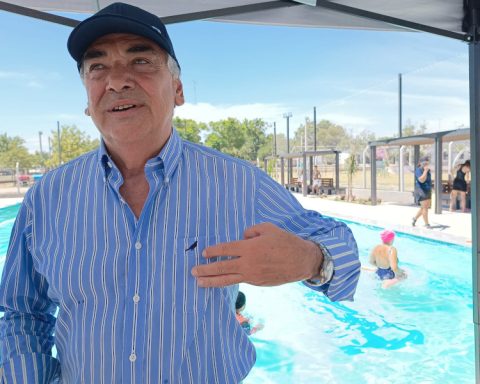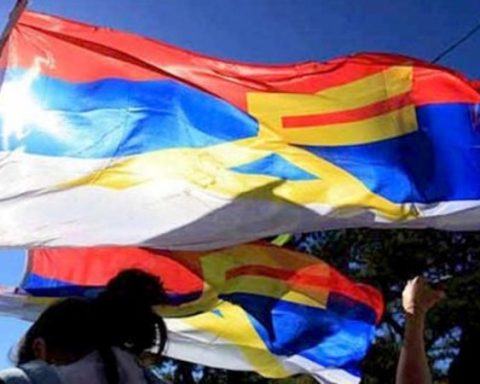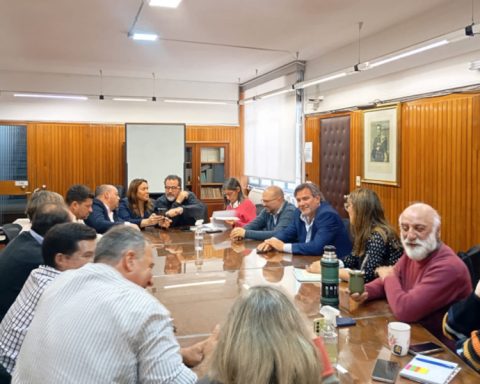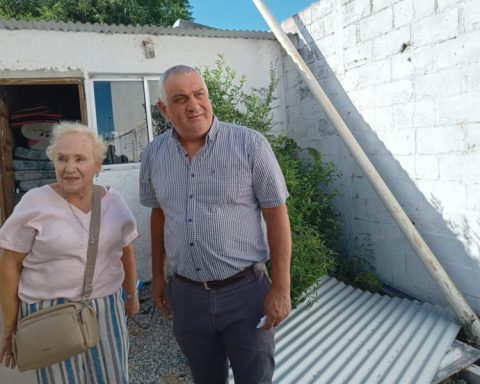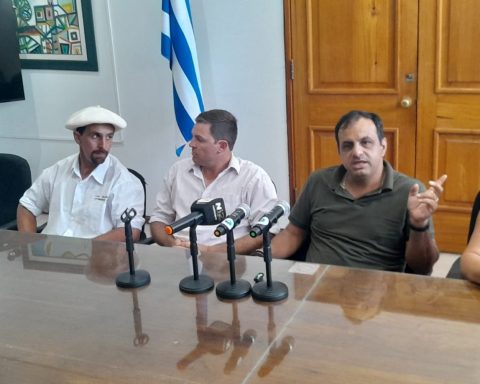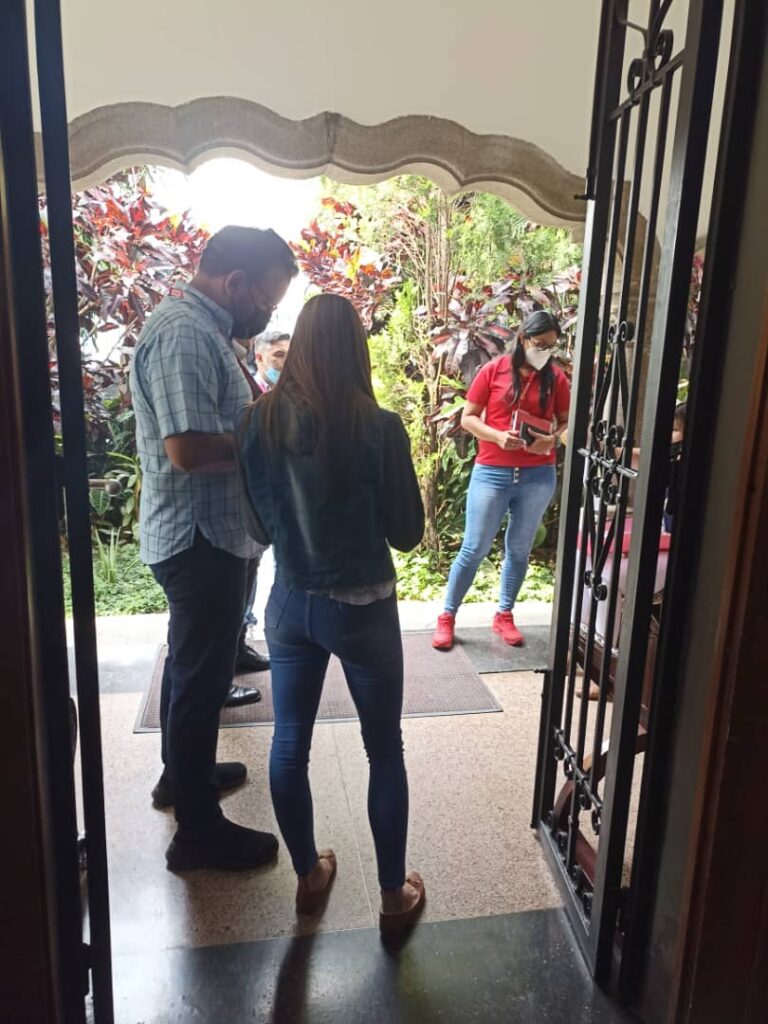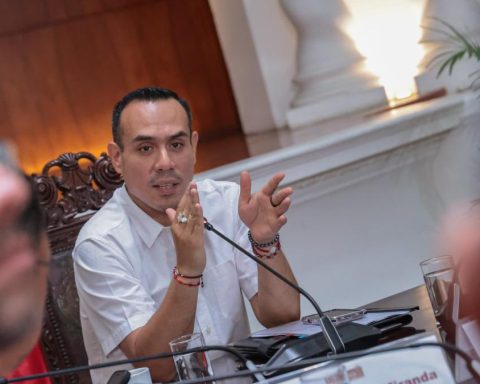The Minister of Social Development, Martin Lema, explained that the National Youth Institute (INJU) carried out 420 activities to prevent situations that affect mental health, in which 12,500 adolescents and young people participated and 1,100 adults were trained. The hierarch indicated that the Ni Silencio Ni Tabú campaign is being transformed into a program based on a more aggressive policy to detect the problem.
This Monday the 7th in the Executive Tower, the Adolescent Mental Health seminar was held: Contributions to the National Strategy, organized by the Uruguayan Agency for International Cooperation (AUCI) and the United Nations Children’s Fund (UNICEF).
The Minister of Social Development, Martín Lema; the executive director and manager of the AUCI, Mariano Berro and Claudia Romano, respectively; the president of the INJU, Felipe Paullier, and the Unicef representative in Uruguay, Francisco Benavides.
Lema maintained that the matter is related to the concept of inner freedom, because when there are mental health problems the person is conditioned, even more focused on adolescents and young people.
“The issue is important and transcends borders, so listening to each other from different points of view enriches us all. Both by transmitting indicators that do not convince us and that we want to change, as well as actions and public policies that we understand are in the right line”, he considered. Likewise, he highlighted the work carried out by the INJU, based on information and evidence to provide answers.
The hierarch pointed out that the 2018 survey on adolescence and youth showed that 14.2% of this age group mentioned problematic situations that altered their relationship motivations and that 3.5% said that at some point they thought of suicide.
“It is dramatic in any country and it is a national and humanitarian cause that requires answers,” said Lema, who reported that a new investigation will be carried out, taking into account the COVID-19 pandemic.
The minister added that actions were developed to change positions, such as the 420 INJU activities on this subject, reflection and dialogue workshops to change paradigms, in which 12,500 adolescents and young people participated and 1,100 adults were trained.
He stressed that efforts are being made to transform the Ni Silencio Ni Tabú campaign into a program based on a more aggressive policy to detect the problem.
Berro indicated that mental health is a concern raised by the President of the Republic himself to national and international authorities and that this seminar allows reviewing what is being done and improving it. He added that it is essential to understand the signals that adolescents and young people can transmit and respond to them.
The purpose of the meeting was to exchange experiences between international specialists, national authorities and technicians in the field, with the aim of continuing to strengthen the development of public policies that promote adolescent mental health and psychosocial well-being.
Experts from Uruguay, Australia, the United States, England and Spain also attended, who addressed the issue in panels on the global situation, the need to evaluate and the benefit of investing, Uruguay’s progress in the adolescent mental health strategy, international experiences, suicide prevention and treatment of adolescents in high-risk situations, among others.
